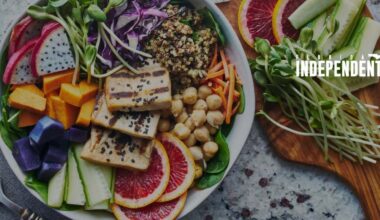As a society, we’re always hopping from one health craze to the next. We drive ourselves crazy drinking green juice, investing in workout clothes and listening to wellness podcasts.
What if one of the simplest and most nutritious additions we could incorporate into our lifestyle came from nature? It’s true!
Iodine is a mineral found in most diets, though some foods are richer in it than others. It’s essential to our overall health and is especially important for thyroid regulation.
Today, we’re diving into some of the basics of an iodine diet, along with steps to take to make sure you’re approaching it the right way.
Ready to learn more? Let’s go!
Table Of Contents
Why Is Iodine Important?
In short, iodine and thyroid health go hand-in-hand. Your body uses iodine to make thyroid hormones, which then help control the speed of your metabolism. If your diet is deficient in iodine, you could suffer from hypothyroidism.
Some of the symptoms of this condition include:
- Fatigue
- Sensitivity to cold
- Constipation
- Dry and flaky skin
- Unexplainable weight gain
On the other hand, if you intake or naturally produce too much iodine, you could have hyperthyroidism, characterized by the following symptoms:
- Unexplainable weight loss
- Rapid and irregular heartbeat
- Irritability
- Excess perspiration
Thus, it’s important to balance the levels of iodine in your body to keep your thyroid in balance. Pregnant women may suffer from lower levels of iodine than normal. As such, they’ll often take a supplement to get their levels back up where they need to be to ensure proper fetal development.
Iodine supplements are available in forms that include potassium iodide or sodium iodide. You’ll also find the nutrient in multivitamin-mineral supplements. It’s critical for proper bone and brain development, as well as cognitive function and nervous system development.
Other iodine uses include as a relieving foot soak for diabetics, as well as a treatment for fibrocystic breast changes.
In addition, those who take iodine supplements note that it can help improve their energy levels, eradicate internal toxins, fight cancer and provide protection from radiation. In other words, it’s a powerful opponent and you need it in your corner.
Understanding a Balanced Iodine Diet
The majority of people get enough iodine in their diets. In fact, there are 400 micrograms of the nutrient in one teaspoon of table salt alone! This is more than two times the amount that most adults need to consume on a normal day.
However, if you’re sticking to a low-salt diet, you may find that you have to work a little harder to derive a sufficient amount of iodine from your food choices alone. Moreover, if you live in a country that doesn’t have a salt iodization program (the U.S. does), you may consume non-iodized salt on a normal basis and require an iodine supplement.
These other populations may have low iodine levels present in their diets, as well:
- Those living in regions with iodine-deficient soil
- Those who consume a heavy amount of goitrogens, such as soy, cabbage, broccoli, cauliflower, and other cruciferous vegetables, as these interfere with your thyroid’s uptake
- Those on strict or specialty diets
Iodine-Rich Foods
When it comes to foods, where should you begin? Which foods contain the most iodine? The short answer is those that come from the sea.
The best and most direct source is seaweed, which you can find at most health food stores. If the taste is offputting and you prefer to munch on something else, reach for these other top seafood sources:
- Lobster
- Tuna
- Sardines
- Shrimp
- Salmon
You’ll also find substantial levels of iodine in dairy products, eggs, grains, and whole vegetables. When it comes to the latter, the levels of iodine present in veggies is contingent upon how much iodine was in their growing soil, as well as in any fertilizer used.
Essential for newborn development, it’s also present in breast milk and added to baby formula. If you’re pregnant or lactating, you’ll need about 50% more than the normal amount of iodine in your diet.
When Is Too Much?
Though it’s hard to reach excessive levels, you can have too much of a good thing.
If you think your iodine levels are too low and you’re considering incorporating a supplement into your daily routine, ask your doctor first and be sure to explain any medications you’re currently taking. Iodine doesn’t mix well with many other forms of medicine, so be as upfront and honest about your current routine.
Symptoms of an Iodine Overdose
If you’re an adult, consuming more than 1,100 micrograms of iodine per day can be dangerous, as it may have a negative effect on your thyroid health. Some of the warning signs that your iodine levels are too high or that you need to lower your supplement dosage include:
- Stomach pain
- Nausea
- Headache
- Runny nose
- Metallic taste in your mouth
- Diarrhea
If you have a history of thyroid issues or if they run in your family, contact your doctor before starting an iodine supplement.
Embrace an Iodine Diet Today
If you’re consuming enough iodine and you aren’t experiencing any of the aforementioned symptoms, an iodine diet may be the way to go! Continue to stock up on all the delicious flavors of the sea and beyond that happen to be great for your health, to boot!
If you’re experiencing a negative reaction because your levels are too low or too high, contact your healthcare professional before making any changes to your routine, diet or otherwise.
Want more local news on business, lifestyle, and health? Keep reading our blog!


